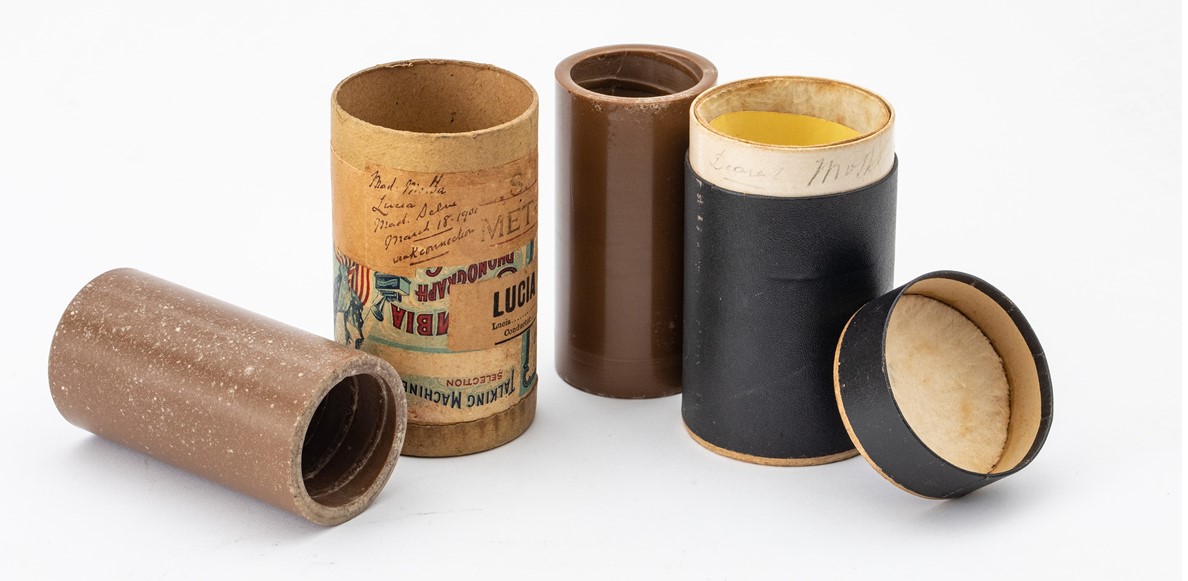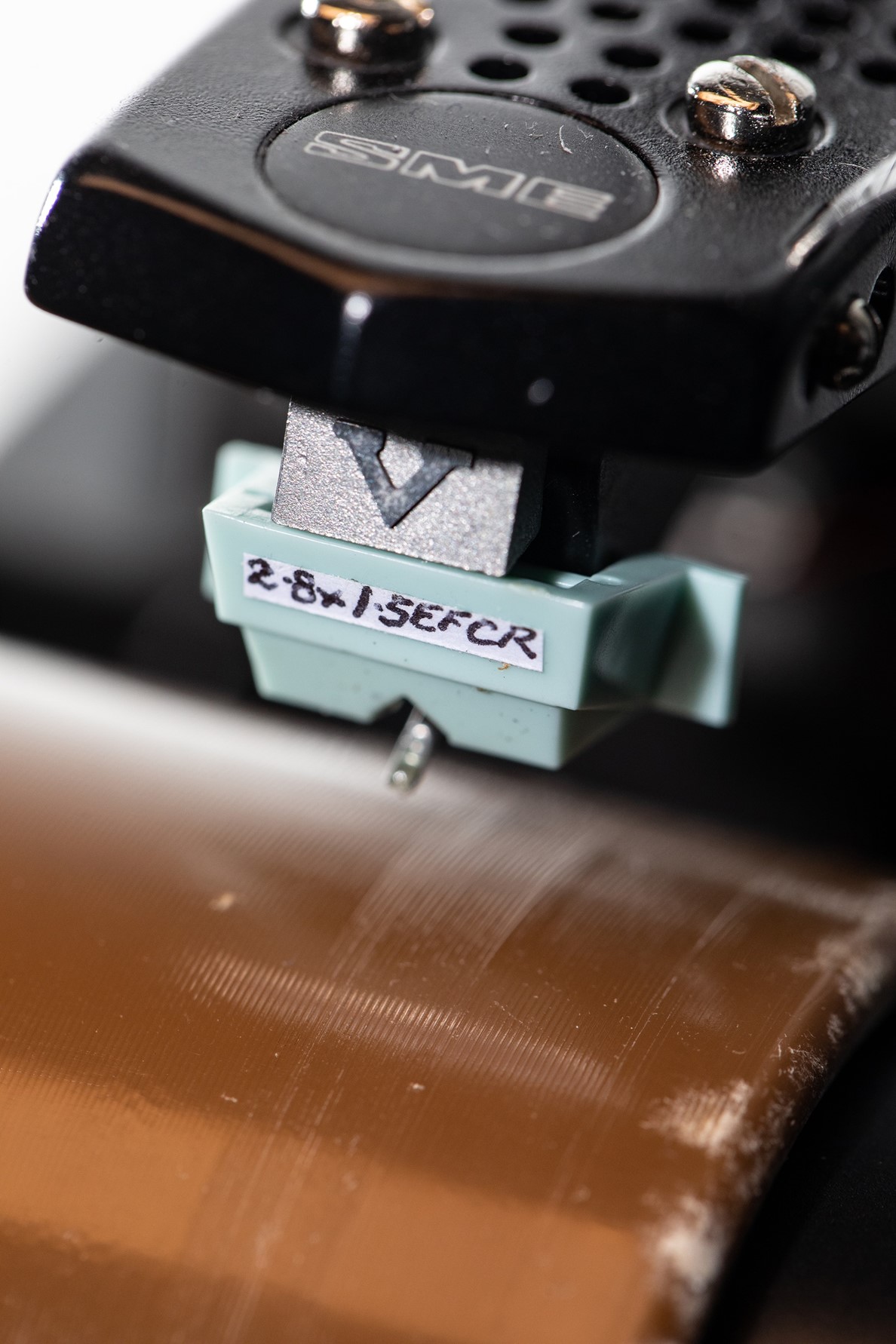NEW YORK — The first recording,
swathed in sheets of distortion, was nonetheless recognizable as a child’s
voice — small, nervous, encouraged by his father — wishing a very Merry
Christmas to whoever was listening.
اضافة اعلان
The second recording, though still noisy,
adequately captured the finale of the second act of “Aida”, performed by German
singer Johanna Gadski at the Metropolitan Opera House in the spring of 1903.
And the third recording was the clearest
yet: the waltz from “Romeo and Juliet”, also from the Met, sung by Australian
soprano Nellie Melba.
Accessed by laptop in a conference room at
the New York Public Library for the Performing Arts, the recordings had been
excavated and digitized from a much older source: wax cylinders, an audio
format popularized in the late 19th century as the first commercial means of
recording sound. These particular documentations originated with Lionel
Mapleson, an English-born librarian for the Metropolitan Opera, who made
hundreds of wax cylinder recordings, capturing both the turn-of-the-century
opera performances he saw as part of his job and the minutiae of family life.
 Lionel Mapleson Cylinders, recordings from Lionel
Mapleson, an English-born librarian for the Metropolitan Opera, at the New York
Public Library for the Performing Arts in New York on December 19, 2022.
Lionel Mapleson Cylinders, recordings from Lionel
Mapleson, an English-born librarian for the Metropolitan Opera, at the New York
Public Library for the Performing Arts in New York on December 19, 2022.
For decades, the Mapleson Cylinders, as
they are called by archivists and audiologists, have been a valuable but
fragile resource. Wax cylinders were not made for long-term use — the earliest
models wore out after a few dozen plays — and are especially vulnerable to poor
storage conditions. But with the innovation of the Endpoint Cylinder and
Dictabelt Machine, a custom-built piece of equipment made specifically for
safely transferring audio from the cylinders, the library is embarking on an
ambitious preservation project: to digitize not just the Mapleson Cylinders,
but roughly 2,500 others in the library’s possession.
Diary of soundThe machine will also allow the library to
play a handful of broken Mapleson cylinders that nobody alive has ever heard.
“I have no idea what they’re going to sound like, but the fact that they were
shattered a long time ago saved them from being played too often,” said Jessica
Wood, the library’s assistant curator for music and recorded sound. “It’s
possible that the sound quality of those will let us hear something totally new
from the earliest moments in recording history.”
The machine will also allow the library to play a handful of broken Mapleson cylinders that nobody alive has ever heard…“It’s possible that the sound quality of those will let us hear something totally new from the earliest moments in recording history.”
Some of the Mapleson Cylinders had been in
the library’s collection, but another batch was recently provided by Alfred
Mapleson, the Met librarian’s great-grandson. This donation was accompanied by
another valuable resource: a collection of diaries, written by Lionel Mapleson,
that studiously chronicled both his daily life and the Metropolitan Opera’s
calendar. The diaries provide extra context to both Mapleson’s audio recordings
and the broader world of New York opera. One entry from New Year’s Day in 1908
noted the “tremendous reception” for a performance by Gustav Mahler. Another
described the time that Italian conductor Arturo Toscanini, “in rage”,
dismissed his orchestra because of noise on the roof.
“The consistent keeping of this diary is
much more important than just for music,” said Bob Kosovsky, a librarian in the
New York Public Library’s music division. “It’s such an amazing insight into
life in New York and England, since he went back every summer to the family.”
The library acquired the Endpoint machine
from its creator, Nicholas Bergh, last spring, as NPR reported then. “The
Western music at that time was being recorded in the studios, so it’s very
unique to have someone that was documenting what was actually going on there at
the theater,” said Bergh, who developed the machine as part of his work in
audio preservation.
Alfred Mapleson soon reached out to the
library about the diaries, and the collection of his great-grandfather’s
cylinders that had, for years, awaited rediscovery in his mother’s Long Island
basement. In November, they were packed into coolers and transported by
climate-controlled truck to the library, where they are now stored in acid-free
cardboard boxes meant to mitigate the risk of future degradation.
Sharing the family inheritanceThese cylinders were previously available
to the library in the 1980s, when they were transferred to magnetic tape and
released as part of a six-volume LP set compiling the Mapleson recordings.
After that, they were returned to the Mapleson family, while the greater
collection stayed with the library. But, Wood said, “there’s people all over
the world that are convinced that a new transfer of those cylinders would
reveal more audio details than the previous ones.”
 Lionel Mapleson’s diaries, which studiously
chronicled both his daily life and the Metropolitan Opera’s calendar, at the
New York Public Library for the Performing Arts in New York on December 19,
2022.
Lionel Mapleson’s diaries, which studiously
chronicled both his daily life and the Metropolitan Opera’s calendar, at the
New York Public Library for the Performing Arts in New York on December 19,
2022.
Wax cylinders were traditionally played on
a phonograph, where, similar to a modern record player, a stylus followed
grooves in the wax and translated the information into sound. The Endpoint
machine uses a laser that places less stress on the cylinders, allowing it to
take a detailed imprint without sacrificing physical integrity, and to adjust
for how some cylinders have warped over time. The machine can retrieve
information from broken cylinder shards that are incapable of being
traditionally played, which can then be digitally reconstituted into a complete
recording.
Within the next few years, the library
hopes to digitize both the cylinders and the diaries, and make them available
to the public. The non-Mapleson cylinders in the library’s collection are also
eligible to be digitized, though Wood said that process will be determined
based on requests for certain cylinders. The library’s engineers are shared
across departments, and with a backlog of thousands, she said, “We have to wait
our turn.”
Alfred Mapleson said he was simply happy to
put his family inheritance to good use. The cylinders were previously part of
the Mapleson Music Library, a family-owned business that rented sheet music,
among other things, to performers. But the business liquidated in the
mid-1990s, and the cylinders had sat untouched in his mother’s basement ever
since.
“There’s an important obligation to history
that needs to be maintained,” he said. “We don’t want them sitting in our
possession, where they could get lost or damaged.” He waved off the possibility
of selling them to a private collector, where they might find no public
utility: “That’s not something that would sit well with my family.”
The machine can retrieve information from broken cylinder shards that are incapable of being traditionally played, which can then be digitally reconstituted into a complete recording.
His great-grandfather’s archives had
offered him plenty to reflect on. His wife had gone through the diaries, he
said, and pointed out the behavioral similarities between living family members
and their ancestors. He noted, with some awe, how his grandfather’s voice — the
one wishing a Merry Christmas — resembled his own children’s voices. But it was
time to pass everything on, and he said he had no interest in repossessing the
materials once the library had finished digitizing everything.
“It’s in better hands at the New York
Public Library,” he said. The recordings had originated at the Metropolitan
Opera; now, they would reside nearby forever. “Let’s keep it in New York,
because this is where it all happened. I like that idea.”
Read more Lifestyle
Jordan News



